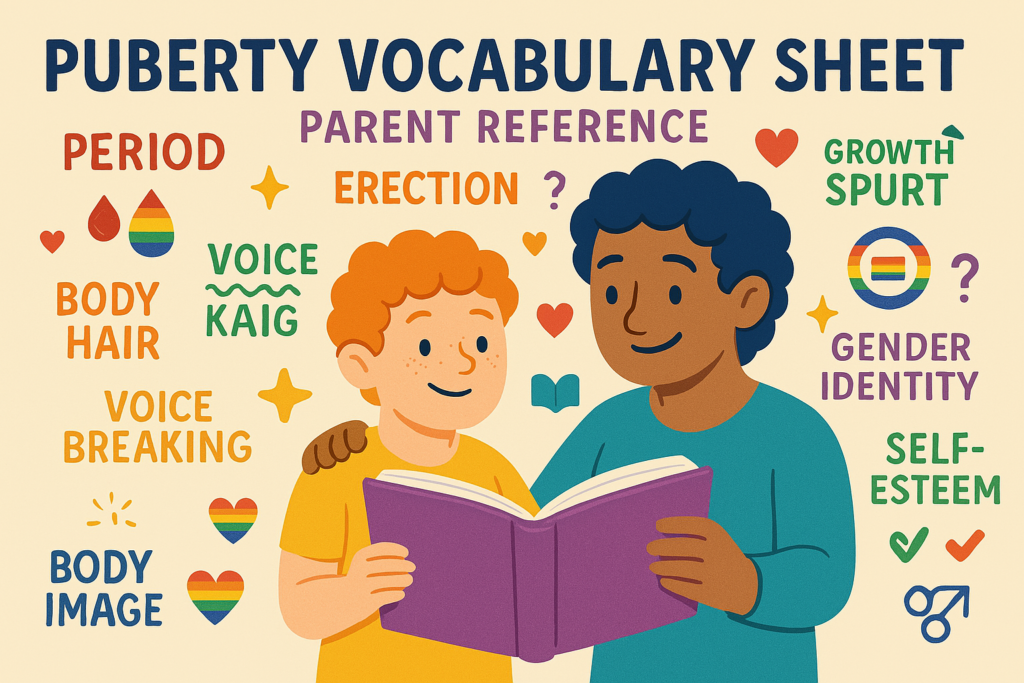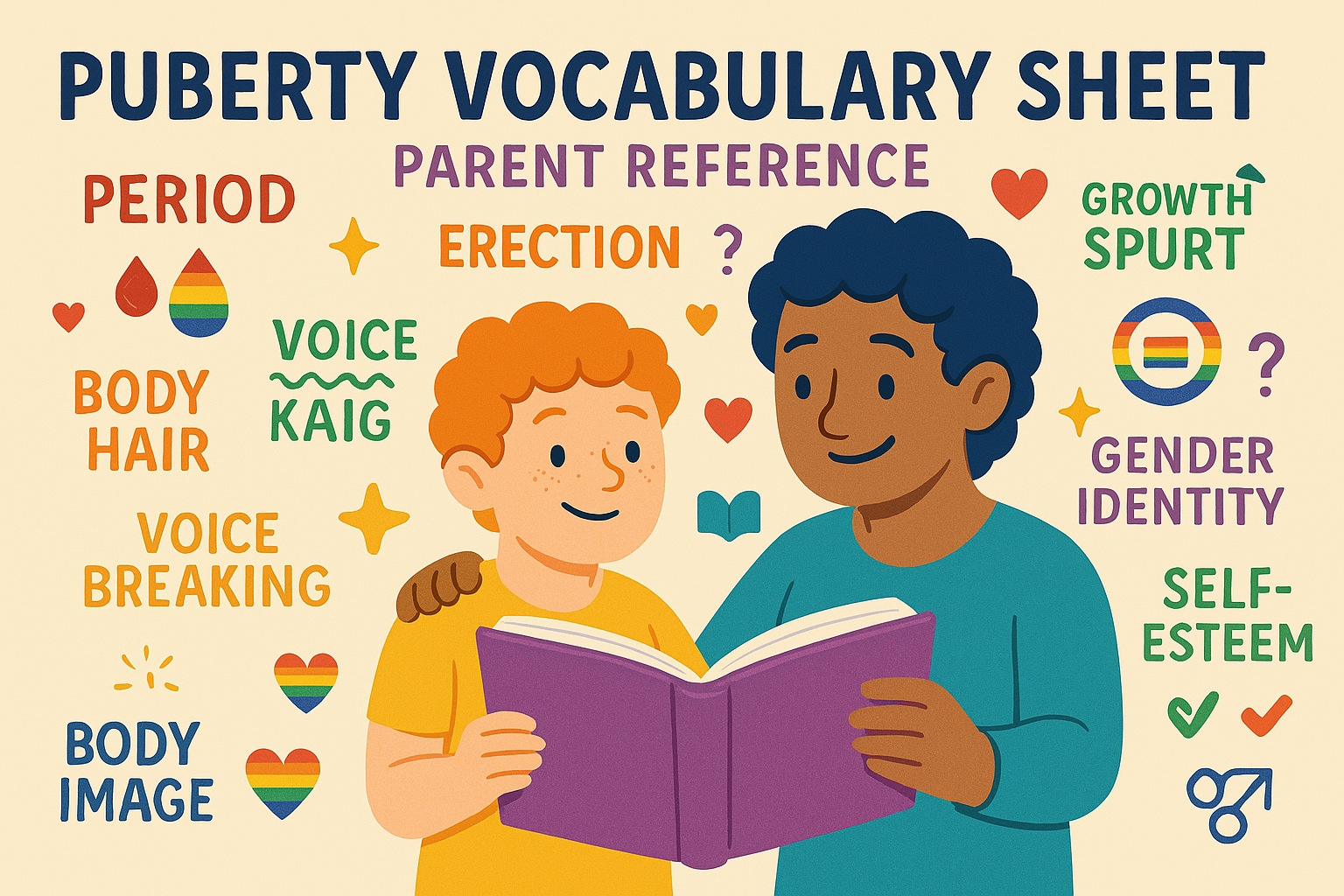Puberty Vocabulary Sheet — Parent Reference
One of the most common challenges parents face when talking about puberty is not always knowing the right words to use. Many adults were never taught the correct terms themselves or grew up using nicknames and slang for body parts and puberty-related topics. This can make conversations with children feel awkward or confusing, especially if you worry about saying something wrong. The Puberty Vocabulary Sheet — Parent Reference has been created to solve this problem in a simple and parent-friendly way.
This printable sheet provides a clear, straightforward list of the key words and phrases most children will encounter when learning about puberty. Each word is explained in plain, respectful language so you, as a parent, can understand exactly what it means and feel confident using it. The sheet avoids complicated medical jargon, making it suitable for all parents, including those who may not have had formal education or access to good puberty education themselves.

Members Only
You need to be registered and logged in to access this printable parents guide and other learning resources, games and quizzes. It only costs £1.99
The vocabulary list includes words related to physical changes, like periods, voice breaking, erections, growth spurts, and body hair, as well as emotional and social terms like self-esteem, body image, consent, and gender identity. It is fully gender-inclusive, making it useful for families raising boys, girls, or children who are exploring their identity. This ensures you are prepared to explain things clearly no matter what your child asks.
For home educators, this sheet is particularly valuable as part of any personal, social, or health education topic. It can be used as a personal reference when planning lessons or to prepare before having sensitive discussions. It also works well as a teaching tool — older children may even benefit from reading it directly to help build their understanding of new words they may have heard from friends, media, or other sources.
Using correct vocabulary helps children feel less embarrassed or confused. It also helps reduce shame around natural body changes and encourages open, honest conversations. Children notice when adults hesitate, avoid certain words, or seem unsure — this resource will help you speak with more confidence and clarity.
The sheet can also be used alongside the other puberty resources in this toolkit, including The Hard Questions & How To Answer Them, How to Talk About Puberty, and the Puberty Timeline Cheat Sheet, to build a complete, supportive approach to teaching about growing up.
Whether you are introducing these words for the first time, refreshing your knowledge, or building confidence to answer tricky questions, this vocabulary sheet gives you a solid starting point to support your child’s learning and wellbeing during puberty.
